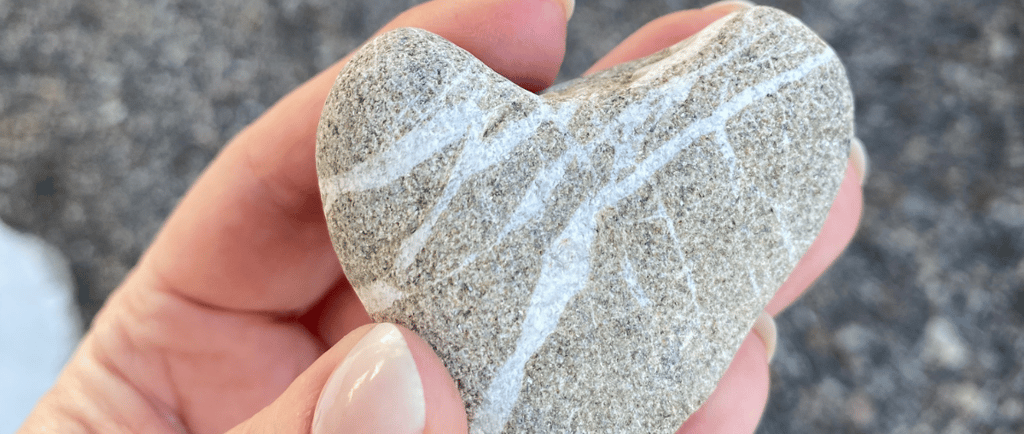Mastering The Art of Self-Love: Benefits, Best Practices and Tools
Self-love is more than a buzzword—it's a lifelong practice that builds resilience, boosts confidence, and strengthens your emotional well-being. How to master the art of Self-Love?
SELF-LOVE, HEALING & INNER WORK
Soul Sisters Tarot
6/1/20257 min read


Mastering The Art of Self-Love: Benefits, Best Practices and Tools
Self-love isn’t just a trendy word that keeps following us around—it’s a critical foundation for mental, emotional, and even physical well-being. According to the Brain and Behavior Research Foundation, self-love is simply a state of appreciation for oneself. The foundation also points out that we can grow self-love if we form actions that support our spiritual, emotional, and physical growth.
Yet, many people still struggle with knowing where to begin with self-love. They may also feel guilty if they occasionally put themselves first. For a deeper overview of self-love and inner work, you can visit our self-love and healing hub.
Mastering the art of self-love is about more than bubble baths, going to a hairdresser, and self-loving affirmations—it's a lifelong journey of recognizing your worth, setting boundaries, and learning to grow compassion for yourself. In this article, we'll explore what self-love truly means, why it matters, and how to put it into practice through proven tools and best practices. Whether you're just starting or looking to deepen your self-care journey, this guide is here to help you build a healthier, more fulfilling relationship with yourself.
“And it’s not just about a more fulfilling relationship with yourself. I had to learn to love myself the hard way, through depression and hardships. But what I learned in the end was that if you truly love and know yourself, everything else becomes easier. Loving yourself gives you a foundation that will get you through anything.” - Caitlin
What is the art of self-love?
Definition of self-love
Self-love means having an appreciation and positive feelings toward yourself. It involves accepting your flaws, acknowledging your strengths, and treating yourself with the same compassion and respect that you would extend to a loved one. It’s closely tied to self-esteem, self-respect, and self-trust. Also, note that self-trust includes our intuition as well, and learning how to trust and listen to it.
Self-compassion
We can think of self-compassion as the emotional muscle that allows us to acknowledge our mistakes without throwing in some judgment. While self-love affirms your worth and builds your self-esteem, self-compassion supports your growth as a person. It's the practice of being gentle with yourself when you're struggling, instead of becoming your own harshest critic. Additionally, it’s a celebration of your small achievements; it’s like being your own cheerleader.
Best practices
Developing self-love is an ongoing journey; let’s not forget that. It’s not something you do once, and then you are done. Best practices include positive self-talk, forgiving yourself, setting boundaries, and making time for reflection and personal growth. These practices are not indulgent—they’re foundational to mental, emotional, and even physical well-being.
The Art of Self-Love: How to start?
Do your research
Understanding self-love starts with knowledge. Read articles, listen to podcasts, or seek insights from psychologists and wellness experts. Understanding the science and psychology behind self-love helps you approach it with intentionality, rather than treating it as a vague concept or just another trendy thing on social media.
Define self-love for yourself.
What does self-love mean to you? It could mean carving out alone time, practicing creative expression, or learning to say "no." Defining self-love in your own terms ensures you stay true to your needs rather than following someone else’s ideal. For example, taking nature walks could totally be your thing, while dancing around the house is not. The truth is, self-love has a definition, quite a wide one to be honest, but it means something different to every person. That’s one of the reasons why self-love is such a personal journey.
Are there any benefits in mastering the art of self-love?
Yes—many. A strong sense of self-love can:
Lower stress and boost emotional resilience;
Increase your willingness to take healthy risks.
Improve empathy and deepen relationships;
Boost your confidence and self-efficacy.
Help you set and maintain healthy boundaries;
People with a healthy sense of self-love tend to have better coping strategies, are more likely to pursue their goals, and are more resistant to burnout and toxic dynamics. And, to be honest, people who love themselves and truly know themselves really feel happier. You can see it in their eyes.
What are the best practices in the art of self-love?
Forgiveness and Letting Go
Let go of guilt, perfectionism, and old emotional wounds. Forgiveness—especially of yourself—is a powerful act of self-love. Forgiveness and letting go can help you move forward in life without guilt.
“It absolutely feels like easier said than done. And it is. Letting go and forgiving can be quite hard, but remember, you are doing it for yourself, not for others. Letting go is about you, just like forgiving is about you and your mental health. Unfortunately, all of these things are your responsibility. No one else is responsible for your emotional well-being.” - Caitlin
Putting Yourself First
Putting your needs first isn’t selfish—it’s essential. You can't pour from an empty cup, and this is really true. Prioritize your well-being, energy, and happiness. This might mean turning down commitments or carving out quiet moments just for you.
“We, as women, were raised to serve others. We were told that we have to be nice and polite to others, help them, and that’s something we also saw. Our mothers were doing all these things for their husbands and their kids, and even their neighbours. That’s how we learned to be serving toward other people. We can still do that, but it’s more important than ever not to forget about yourself. You are allowed to take time for yourself and care for yourself. Because, at the end of the day, you are the only person you have to live with til the end of time. And you want to live with a happy person, with a happy you.” - Caitlin
Show Love for Yourself through Self-Compassion
Be kind to yourself, and these are not just words or suggestions here. Be as kind as you would be to a close friend. When things go wrong, resist harsh self-talk and practice supportive, encouraging language. This not only improves mental health but also builds emotional resilience. Give yourself a pat on the shoulder. You did well. You are worthy. You are absolutely amazing.
Setting Healthy Boundaries
Boundaries help preserve your emotional energy and self-respect. Boundaries help clarify what is acceptable for you and protect you from burnout, resentment, and toxic behavior. Defining your boundaries is another good way to learn about yourself. Many people don’t even know their boundaries, and that they have been broken or overstepped by others many times.
Self-care rituals
Whether it’s journaling, walks in nature, skincare routines, or cozy evenings with a book, your self-care rituals should nurture your body, mind, and spirit. The goal isn’t to treat yourself occasionally—it’s to honor yourself consistently.
What kind of tools are popular parts of the art of self-love?
Meditation
Meditation allows you to quiet your inner critic and create space for compassion and clarity. Even just five minutes a day can help reset your mindset and reconnect with your inner self.
“I remember, years ago, I tried meditation for the first time. I did not know what to do or what to focus on. Do I have to focus on my breathing? Thoughts? The truth is, yes, there are many different types of meditation, but what helped me was one thing that one meditation practitioner said. It was something like, you can focus on your breathing, but the point of meditation is to just let anything that wants to come up, come up. Just let the thoughts and images flow, and just observe them, don’t engage or go along with anything that comes up. I tried meditation this way, and it worked.” - Caitlin
Mindfulness
Being present helps you break the cycle of worry and self-judgment. Mindfulness encourages awareness of your thoughts, emotions, and habits, allowing you to respond with intention rather than reaction.
Journaling
Journaling is a powerful tool for emotional processing and self-discovery. It helps track growth, clarify thoughts, and reveal patterns in how you speak to yourself. Journaling prompts like “What are the 3 best qualities that I have?” can make a big impact. If you don’t know what to journal about, we have a solution for that, too. We have created 365 Psychological Journal Prompts for you, so that you have one new topic every day for a year.
Self-Reflection
Self-reflection involves taking the time to evaluate your feelings, choices, and patterns. Whether it’s through therapy, journaling, or meditation, self-reflection helps you stay grounded in your values and authentic self.
How to Master the Art of Self-Love?
Start somewhere, just start, you will learn along the way
Don’t wait for the “perfect moment” to begin loving yourself. The process is imperfect, evolving, and deeply personal. Start small—say one kind thing to yourself today. Over time, the small things become a strong foundation.
Self-love books and workbooks
Books like The Gifts of Imperfection by Brené Brown or Radical Acceptance by Tara Brach can offer powerful insights and exercises to deepen your practice. Self-Love Workbooks provide structure and reflection space to guide your journey.
“That’s why I put together a Self-Love Workbook myself. I used my knowledge and experiences, as well as all the exercises that I have practised on myself. Sure, not all of them are my favorites, but that’s okay. Self-love is a personal journey, and what works for one person might not work for others. That’s why there are so many different exercises to choose from. You can check out my workbook. Maybe it’s not for you, and maybe it is.” - Caitlin
Journaling tools
Use guided journals or digital apps with prompts designed for self-reflection and affirmations. Tools like “Self-Love Workbook” or apps like Day One or Reflectly help you stay consistent and deepen your self-awareness.
Take the Leap of Faith and Start Your Journey
Mastering the art of self-love isn’t about perfection—it’s about progress, awareness, and a lifelong commitment to your well-being. What makes self-love an art is that it requires intention, creativity, and self-awareness. It’s not a one-size-fits-all formula; rather, it’s a deeply personal, evolving practice of tuning in, expressing care, and honoring your own needs and worth.
Like any artistic process, self-love asks for curiosity, vulnerability, and experimentation. You learn your rhythms, boundaries, and values through reflection and lived experience. You shape your daily rituals—whether through journaling, setting boundaries, practicing gratitude, or forgiving yourself—as brushstrokes that contribute to a fuller, more compassionate picture of who you are.
The benefits are real: greater resilience, improved mental health, healthier relationships, and a more empowered sense of self. And while the journey isn’t always easy, it is always worth it.
💛 Ready to start loving yourself more intentionally?
Take one small step today—write a kind note to yourself, set a boundary, or pause to breathe and check in. And if you need guidance, explore self-love books, mindfulness tools, or journaling prompts to keep you grounded.
Start now. Your best relationship starts with you.
With Love,
Caitlin & Gerly,
Soul Sisters Tarot
Soul Sisters Tarot
A Soft Place to Grow.
Join our weekly newsletter
© 2026. All rights reserved.
Inspirational Coaching OÜ
sisters@soulsisterstarot.com
